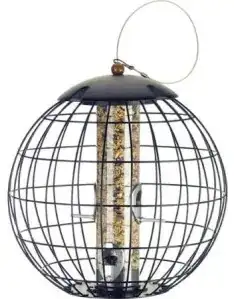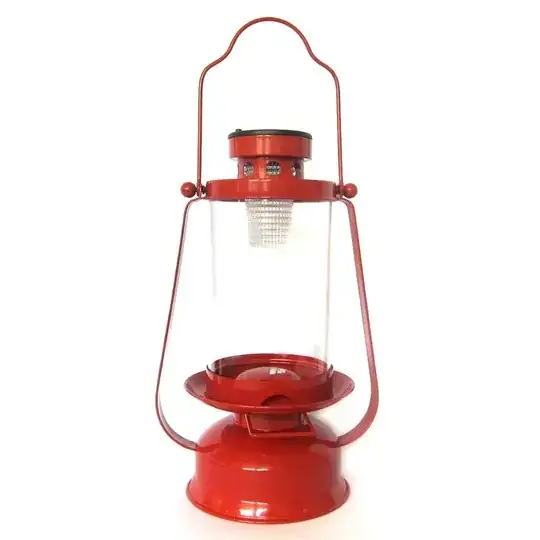There isn't much you can do to prevent them flying into your yard. anything that keeps them away will usually scare off the birds you want, as well. About them eating your berries, that can be an issue. The thing that worked best for me was bird netting over a hoop frame. It's some work, but it looks better and is easier to get into than laying the mesh directly on the bushes. It can also help to plant some berries for the birds, like mulberries (they love them) to keep them from trying to get through the mesh.

I haven't had too much success with aluminum foil pie tins (meant to wave around in the wind, making noise and reflections) or reflective bird tape.
You have some rather generic bird feeders (aren't they all), and they support a lot of range in bird sizes. You can't really stop the unwanted birds from hanging around by changing the feeder, but you can make it so they can't get anything.
Here are some styles of feeder that work:
My favorite; the big birds can't even get in, And another I've used, and can work well:


The first one is really handy, and looks cool too. It keeps birds bigger than a certain size from getting through. You can buy different shapes, sizes of cage-hole sizes. The second (I think it's the same type of thing kevinsky uses) one worked well for a while, but then got gunked up (somehow) and I had to clean it out (the part with the closing mechanism) before it would work again. That winter, there was a lot of ice and snow, and the poor thing was stuck over and over, until it cracked. Next time I get one, it's going to overwinter indoors, and I'll use something foolproof out in the ice.
You said,
Is there something I could do to discourage the flocks of blackbirds from visiting my yard. Or would it be best for me to just take away the bird feeders now?
The birds are going to fly into your yard even if you don't have feeders up, and especially if you have ripening berries. Even 'good' birds will eat those. I wouldn't try to keep them away by removing feeders, but as I stated above, using a protector over the berries.




